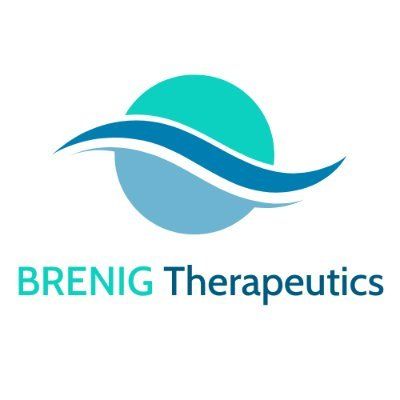预约演示
更新于:2025-11-22
BT-267
更新于:2025-11-22
概要
基本信息
非在研机构- |
权益机构- |
最高研发阶段临床1期 |
首次获批日期- |
最高研发阶段(中国)- |
特殊审评- |
登录后查看时间轴
关联
100 项与 BT-267 相关的临床结果
登录后查看更多信息
100 项与 BT-267 相关的转化医学
登录后查看更多信息
100 项与 BT-267 相关的专利(医药)
登录后查看更多信息
8
项与 BT-267 相关的新闻(医药)2024-11-28
DOVER, DE, USA I November 26, 2024 I
Brenig Therapeutics announced the initiation of the first-in-human clinical trial for BT-267, a best-in-class LRRK2 inhibitor developed as a potential disease-modifying treatment for idiopathic and LRRK2-associated Parkinson’s disease. Advancement of Brenig’s clinical program is supported by a recent $65 million financing round, led by New Enterprise Associates.
The trial began in November 2024, dosing healthy volunteers to evaluate BT-267’s safety and tolerability. Following this initial assessment, proof-of-concept studies are planned for patients with idiopathic Parkinson’s disease.
Preclinical data underscores the potential of BT-267 as the best-in-class LRRK2 inhibitor, confirming a superior safety profile, with little or no visible lung or kidney morphological changes at the highest tested doses in GLP toxicology studies and exceptional pharmacokinetics, including high cerebrospinal fluid (CSF) to plasma unbound ratio.
BT-267 benefits from cutting-edge computer-aided drug design, AI/ML computational pharmacology, biomarker models, and the structural biology expertise of its partner Expert Systems Accelerator. Brenig’s advanced approach to predictive biomarkers may help position BT-267 candidate as a promising disease-modifying therapy for Parkinson’s, including idiopathic cases that lack known genetic drivers.
About Brenig Therapeutics
Brenig Therapeutics is a biotechnology company committed to pioneering innovative therapies for neurodegenerative diseases. Through advanced science and a focus on patient needs, Brenig aims to deliver transformative solutions to address the root causes of these debilitating conditions.
SOURCE:
Brenig Therapeutics
临床研究
2024-07-29
·创鉴汇
▎药明康德内容团队编辑
据创鉴汇不完全统计,上周(7月22日至7月28日)全球大健康领域共披露融资事件21起,总额超97亿元。按照金额划分,亿元及以上融资12起。按照已披露的融资轮次划分,早期融资(B轮以前)10起,中后期融资(B轮及以后)6起。生物医药领域共11家公司获融资,涉及药物类型包括抗体药物、创新小分子药物、放射性核素疗法等。
#01
Third Arc Bio完成1.65亿美元超额A轮融资
关键词:多功能抗体药物
最新融资:1.65亿美元A轮
本轮投资机构:Abrdn、BVF Partners、Cormorant Asset Management、Foresite Capital、Freepoint Capital Group、Goldman Sachs Alternatives等
7月24日,Third Arc Bio宣布完成1.65亿美元超额A轮融资。所获资金将用于推动该公司的临床研究,以开发多功能抗体疗法,解决肿瘤学和自身免疫领域尚未满足的重大需求。Third Arc Bio是一家致力于开发多功能抗体的生物技术公司,这些抗体可精确激活或抑制T细胞的免疫突触。该公司的实体瘤、炎症和免疫(I&I)平台提供了一种在组织特异性水平上精确调节的新免疫疗法,有望开发潜在“best-in-class”的T细胞接合器,以达到卓越的疗效和安全性。
#02
Autobahn Therapeutics完成1亿美元C轮融资
关键词:中枢神经疾病新型疗法
最新融资:1亿美元C轮
本轮投资机构:ARCH Venture Partners、Alexandria Venture Investments、BVF Partners、Blue Owl Healthcare Opportunities、Canaan、GT创投等
7月24日,Autobahn Therapeutics宣布成功完成超额认购的1亿美元C轮融资。获得资金将用于其主打项目ABX-002的两项2期临床试验。ABX-002是一种强效的选择性甲状腺激素β受体(TRβ)激动剂,在1期研究中显示出良好的耐受性和中枢神经系统(CNS)靶向作用。Autobahn计划在2024年下半年启动2期试验,旨在为ABX-002作为抑郁症(MDD)和双相情感障碍抑郁症患者的辅助治疗提供生物学和临床概念验证。MDD和双相情感障碍是高度流行、致残且威胁生命的精神疾病,仅在美国就分别影响超过2000万人和700万人。
#03
Brenig Therapeutics完成6500万美元A轮融资
关键词:小分子药物
最新融资:6500万美元A轮
本轮投资机构:BioGeneration Ventures、New Enterprise Associates、Torrey Pines Investment、奥博资本
7月23日,Brenig Therapeutics宣布完成了6500万美元的A轮融资。该公司计划利用获得的资金推进主打疗法BT-267在健康志愿者中的研究,并进入特发性帕金森病患者的概念验证临床试验。此外,公司还将探索推进其他针对帕金森病的潜在“best-in-class”疗法。BT-267是一种小分子LRRK2抑制剂,设计具有潜在“best-in-class”的药代动力学(PK)特征,能够实现持久高度的脑部药物暴露,同时将外周暴露降至最低,从而确保优越的疗效并最小化目标组织外的毒性。该分子展示了极高的激酶组选择性,避免了脱靶效应。
#04
Flagship推出新锐公司Abiologics
关键词:可编程生物制剂
最新融资:5000万美元未知轮
本轮投资机构:Flagship Pioneering
7月24日,Flagship Pioneering推出Abiologics公司,这是一家通过创造称为Synteins的自然界中不存在的可编程药物类型来重新定义生物制品的公司。Synteins通过计算生成并使用新型构建块合成,赋予它们独有的特性,能够为各种疾病患者带来改变生活的治疗。Flagship初步承诺投资5000万美元以推进该公司的平台并开发多样化的药物管线,初步重点是肿瘤学和免疫学适应症。Abiologics的平台是一个完全整合的数字化和自动化实验室基础设施,用于创建具有强大和理想药理特性的生物制品。根据公司介绍,该平台利用先进的生成式人工智能从头计算设计Synteins,使用一套广泛的人工构建模块,超越了今天生物制品基于的20种天然氨基酸。Synteins可以被编程以与几乎任何治疗靶点相互作用,同时避开身体的自然防御机制。
读者们请星标⭐创鉴汇,第一时间收到推送
免责声明:药明康德内容团队专注介绍全球生物医药健康研究进展。本文仅作信息交流之目的,文中观点不代表药明康德立场,亦不代表药明康德支持或反对文中观点。本文也不是治疗方案推荐。如需获得治疗方案指导,请前往正规医院就诊。
版权说明:本文由药明康德内容团队根据公开资料整理编辑,欢迎个人转发至朋友圈,谢绝媒体或机构未经授权以任何形式转发/复制至其他平台。转发授权请在「创鉴汇」微信公众号留言联系我们。
更多数据内容推荐
点击“在看”,分享创鉴汇健康新动态
免疫疗法临床2期放射疗法细胞疗法生物类似药
2024-07-25
In another major milestone in the field of innovative healthcare, on July 23, 2024, Boston-based biotech company Brenig Therapeutics announced that it has successfully closed A $65 million Series A funding round. The round was led by New Enterprise Associates (NEA), a well-known venture capital firm, The participation of several heavyweight investors, including OrbiMed, Torrey Pines Investments and BioGeneration Ventures, shows the broad recognition and expectation of Brenig Therapeutics.
Brenig Therapeutics is a pioneering company focused on the treatment of neurological diseases, particularly in the use of artificial intelligence and machine learning technology to develop new drugs. The focus of its development is on BT-267, an innovative small molecule inhibitor that targets the LRRK2 protein. Mutations in the LRRK2 gene are one of the major genetic factors that cause Parkinson's disease, so the development of BT-267 is of great significance for the treatment of Parkinson's disease.
Iain Dukes, Chairman of Brenig Therapeutics, said: "This financing not only provides us with the financial support to achieve our goal, but more importantly, it gives us the opportunity to address the urgent medical needs of patients with Parkinson's disease through differentiated medicines." This move by OrbiMed partner Iain Dukes is seen as a strong endorsement of Brenig Therapeutics' advanced technology and its dedicated team.
The funding will be used to advance preclinical studies of BT-267 while supporting another undisclosed clinical program at Brenig Therapeutics. According to sources, Brenig plans to move BT-267 into clinical trials in 2025. Given the importance of LRRK2 inhibitors in the treatment of Parkinson's disease, the industry generally believes that Brenig's technical advantages have the potential to bring revolutionary breakthroughs in this field.
In the global battle against Parkinson's disease, this advance by Brenig Therapeutics offers new hope for patients. With the deep integration of technology and medicine, it is reasonable to expect more innovative therapies to be developed to address this global public health challenge.
100 项与 BT-267 相关的药物交易
登录后查看更多信息
研发状态
10 条进展最快的记录, 后查看更多信息
登录
| 适应症 | 最高研发状态 | 国家/地区 | 公司 | 日期 |
|---|---|---|---|---|
| 帕金森病 | 临床1期 | 美国 | 2024-11-26 |
登录后查看更多信息
临床结果
临床结果
适应症
分期
评价
查看全部结果
| 研究 | 分期 | 人群特征 | 评价人数 | 分组 | 结果 | 评价 | 发布日期 |
|---|
No Data | |||||||
登录后查看更多信息
转化医学
使用我们的转化医学数据加速您的研究。
登录
或

药物交易
使用我们的药物交易数据加速您的研究。
登录
或

核心专利
使用我们的核心专利数据促进您的研究。
登录
或

临床分析
紧跟全球注册中心的最新临床试验。
登录
或

批准
利用最新的监管批准信息加速您的研究。
登录
或

特殊审评
只需点击几下即可了解关键药物信息。
登录
或

生物医药百科问答
全新生物医药AI Agent 覆盖科研全链路,让突破性发现快人一步
立即开始免费试用!
智慧芽新药情报库是智慧芽专为生命科学人士构建的基于AI的创新药情报平台,助您全方位提升您的研发与决策效率。
立即开始数据试用!
智慧芽新药库数据也通过智慧芽数据服务平台,以API或者数据包形式对外开放,助您更加充分利用智慧芽新药情报信息。
生物序列数据库
生物药研发创新
免费使用
化学结构数据库
小分子化药研发创新
免费使用
